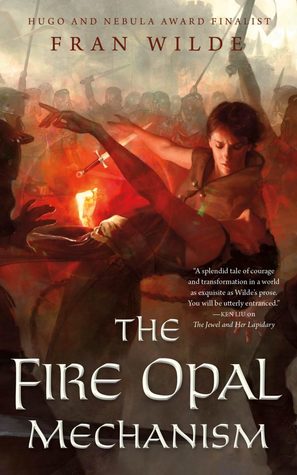 The Fire Opal Mechanism (Gem Universe #2) by Fran Wilde
The Fire Opal Mechanism (Gem Universe #2) by Fran Wilde Format: ebook
Source: purchased from Amazon
Formats available: paperback, ebook
Genres: epic fantasy, fantasy
Series: Gem Universe #2
Pages: 208
Published by Tordotcom Publishing on June 4, 2019
Purchasing Info: Author's Website, Publisher's Website, Amazon, Barnes & Noble, Kobo, Bookshop.org, Better World Books
Goodreads
The Fire Opal Mechanism is the fast-paced and lively sequel to Fran Wilde's The Jewel and Her Lapidary
Jewels and their lapidaries and have all but passed into myth.
Jorit, broke and branded a thief, just wants to escape the Far Reaches for something better. Ania, a rumpled librarian, is trying to protect her books from the Pressmen, who value knowledge but none of the humanity that generates it.
When they stumble upon a mysterious clock powered by an ancient jewel, they may discover secrets in the past that will change the future forever.
My Review:
Information may want to be free, but there are always people and institutions working to keep it caged and under their control. At first, that argument seems to be the central tension in The Fire Opal Mechanism.
This turned out to be a whole lot more relevant to the present than I originally expected. Which was both wonderful and frightening, as it was published 4 years ago and therefore written several months at least before that.
But the impulses that move both the Pressmen’s and the Librarian Ania’s resistance to each other are always with us. Even more fascinating, those motives and that resistance turn out to be a bit of misdirection from the real problem that Ania and her reluctant ally-turned-friend, Jorit, need to resolve.
In whatever time period they can manage to solve it.
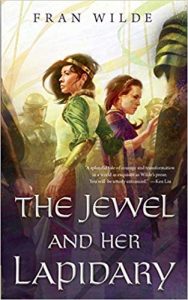 Escape Rating A-: At first, and for a rather long time thereafter, it seems as if the core of The Fire Opal Mechanism is about the freedom of information versus the censorship of it. And yet, at the beginning – the beginning that Ania and Jorit observe and not the place where they personally start – that wasn’t actually the case.
Escape Rating A-: At first, and for a rather long time thereafter, it seems as if the core of The Fire Opal Mechanism is about the freedom of information versus the censorship of it. And yet, at the beginning – the beginning that Ania and Jorit observe and not the place where they personally start – that wasn’t actually the case.
There’s more to unpack there than the reader initially has a clue about. The conflict seems so obvious. The Pressmen – the people who belong to the cult of the Great Press – have come to the last university in the Six Kingdoms to set information free by confiscating all the books and feeding them all to the machine that will literally chew them up and spit them out as part of the all-encompassing Compendium of Knowledge that the machine is producing.
That initial conflict turns out to be a bit too simplistic once Ania sees the Pressmen blow something into people’s faces that causes them to forget who they are. That the same substance erases text whenever it falls upon a book adds to those doubts. Which are stripped away entirely when someone picks up a copy of the Compendium and watches as the print turns from a faithful reproduction of an original – now consumed – work to an overtly propagandist interpretation that spouts the Pressmen’s view of history.
Which is when Ania, with Jorit tagging along, learns that the clock mechanism she has been clinging to for comfort and safety can take her and her companion back through time. Back to the origins of the Pressmen and their conflict with the universities.
Where she discovers that what she is experiencing in her present is a corruption of a past created by the Great Press that has been erased by that same object. And that the Great Press itself is the biggest and most dangerous corruption of all.
In this year of 2023, when book bans are everywhere and governments daily attempt to rewrite history to make their favored groups feel better about themselves in both the past and the present, it’s easy to become invested in the narrative of the brave librarian fighting the forces of evil repression the Pressmen represent – especially for a librarian.
But that’s far from the whole story. Just as The Fire Opal Mechanism loops Ania and Jorit back to the beginning of the conflict, it also wraps the story back to the history of the Gem Universe as a whole as experienced in the first book in the series, The Jewel and Her Lapidary.
That shifting and sifting through time changes the story from its initial, overt conflict about information wanting to be free to being a bit more of ‘the truth will set you free’ because it’s only once Ania and Jorit learn the truth about the Great Press and the origins of the Pressmen by traveling to the past that they are able to find the explosive and cathartic solution they very much need in the present.
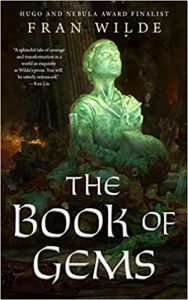 That their harrowing journey together bonds Ania and Jorit in their own mutual truth is the sparkling icing on a very tasty and thought-provoking little book-cake.
That their harrowing journey together bonds Ania and Jorit in their own mutual truth is the sparkling icing on a very tasty and thought-provoking little book-cake.
I decided to read The Fire Opal Mechanism now because I just picked up a copy of the third book in the Gem Universe, The Book of Gems. I was planning to dive right into it, believing that I had already read the first two books in the series, only to discover that while I adored The Jewel and Her Lapidary, I hadn’t actually read this second book. So I immediately set out to rectify that situation and I’m very glad I did. The Book of Gems awaits!

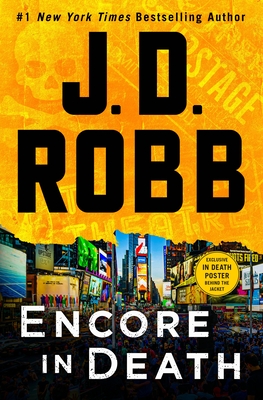 Encore in Death (In Death, #56) by
Encore in Death (In Death, #56) by 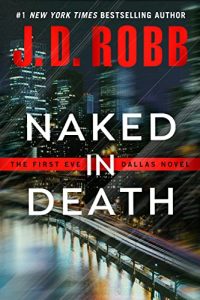 Figuring out what those ‘marriage rules’ are in her own marriage is a work in progress for Dallas. She expected to go through life alone – she certainly never expected to fall in love and get married to anyone, let alone to an ex-thief turned business mogul. All of which is pretty much the story of the entire
Figuring out what those ‘marriage rules’ are in her own marriage is a work in progress for Dallas. She expected to go through life alone – she certainly never expected to fall in love and get married to anyone, let alone to an ex-thief turned business mogul. All of which is pretty much the story of the entire 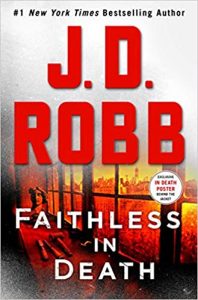 All things considered, however, this isn’t one of the great cases in Dallas’ career – not nearly as absorbing in itself as last year’s
All things considered, however, this isn’t one of the great cases in Dallas’ career – not nearly as absorbing in itself as last year’s  Babel, Or the Necessity of Violence: An Arcane History of the Oxford Translators' Revolution by
Babel, Or the Necessity of Violence: An Arcane History of the Oxford Translators' Revolution by 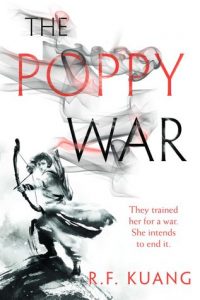 In a work of historical fantasy, particularly one that cleaved so close to this period, those evils would be impossible to ignore and no reader should expect them to be ignored. But Babel is fiction, which means I also went into it expecting a story to be told that would captivate me – and in this particular case captivate me every bit as much as the author’s
In a work of historical fantasy, particularly one that cleaved so close to this period, those evils would be impossible to ignore and no reader should expect them to be ignored. But Babel is fiction, which means I also went into it expecting a story to be told that would captivate me – and in this particular case captivate me every bit as much as the author’s 

 Current Giveaways:
Current Giveaways: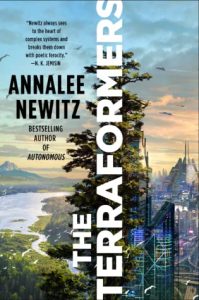 Blog Recap:
Blog Recap: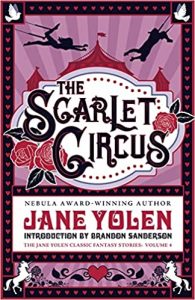 Coming This Week:
Coming This Week:











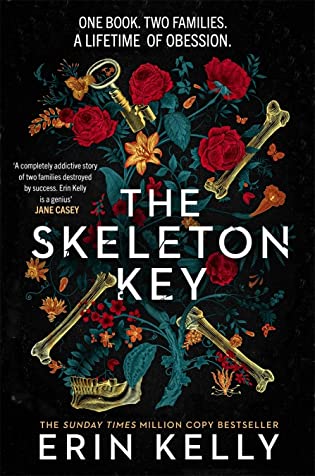 The Skeleton Key by
The Skeleton Key by 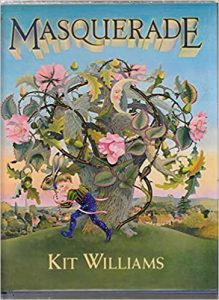 Two things to start. First, the concept of The Golden Bones may sound vaguely familiar – and that’s intentional on the part of the author and acknowledged at the beginning. There was a real, worldwide craze for armchair treasure hunt books in the 1980s, kicked off by the publication of the massively illustrated puzzle/story book
Two things to start. First, the concept of The Golden Bones may sound vaguely familiar – and that’s intentional on the part of the author and acknowledged at the beginning. There was a real, worldwide craze for armchair treasure hunt books in the 1980s, kicked off by the publication of the massively illustrated puzzle/story book 
